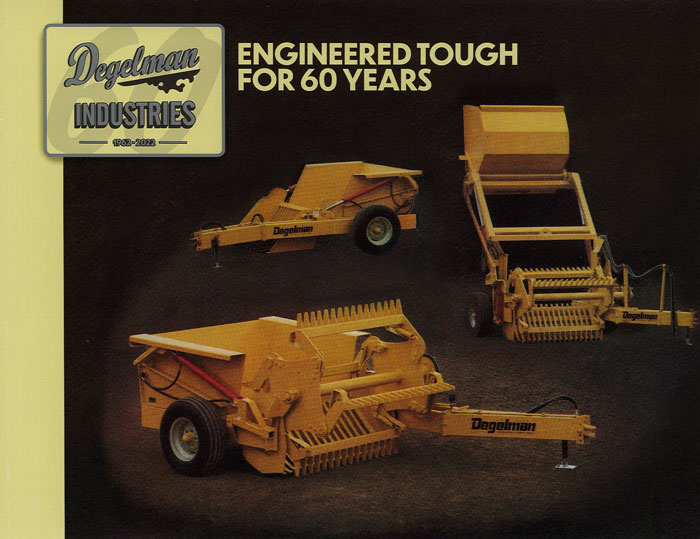“Dad was demanding,” recalls Paul Degelman of Wilf’s approach to business at Degelman Industries. “Everything we did had to be well done, have nice edges; it had to look good and clearly seen as heavy-duty.”
According to Paul and Jack Degelman, their dad’s design demands and commitment to quality had a much greater impact than just their own yellow-branded equipment. While other successful implement manufacturers existed as the Degelmans got off the ground in the 1960s, the products of that era were just OK. That is, they could do the job at a decent value. “Back in those days, you wouldn't define most of what was available as ‘next-level’ equipment,” says Paul.
“But Flexi-Coil and some manufacturers started noticing what Dad was doing. And we had more competition from companies putting more iron into things and making better designs.”
Flexi-Coil was the first of the big-scale OEMs to step up its game, says Paul, who also cited Bourgault and Bridgeview as shortline OEMs who have since put tremendous effort into its designs, fit and finish, and good lines with good paint.
Bridgeview Manufacturing was founded by Kevin Hruska, a 40,000-acre farmer who back-ended into the equipment business. Hruska’s declared goal was to manufacture a ‘Degelman-caliber’ bale processor, recalls Paul. He said, ‘If I can make it like Degelman, we’ll be on the right track quality-wise.”
Jack agrees that little of what was shown at the farm shows of the 1970s would be recognizable by quality demands today. Even majors like John Deere weren’t capping the ends of the tubes on their tillage tools, he says. “We were different; everything was capped and finished. That gap between manufacturers is much smaller now; everyone has caught up.”
According to his sons, Wilf’s demanding designs and personal story influenced countless other shortline entrepreneurs. “Many are familiar with the story of Wilf, a farmer with little education but an intense will to succeed,” Paul recalls. “They thought, ‘If Wilf can do it, maybe I have a chance too.’ And they built their first products in their barns and didn't feel stupid about it. They understood Wilf did the exact same thing; it’s how it happens.”

The other obvious impact of Wilf was the many thousands of lives impacted by his employment. In its recent 60-year history book, each of the employees is cited in the opening spread of the book.






